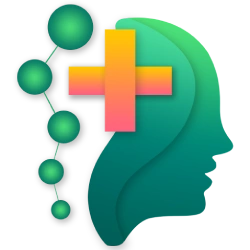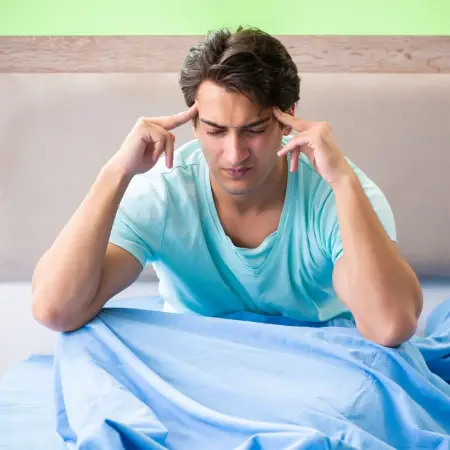Tension Type Headache
Tension Type Headache
Tension-type headache (TTH) is the most common type of headache, characterized by a dull, non-throbbing pain that wraps around the head like a band or vice. It’s often described as a tight, pressing sensation. TTH can last anywhere from 30 minutes to several days and typically affects both sides of the head.If symptoms persist or worsen, consulting with psychiatrists is recommended.
What are the causes and symptoms of Tension-Type Headache?
Causes of Tension-Type Headache:
- Muscle tension: Tightening of muscles in the neck, scalp, and shoulders can contribute to tension-type headaches.
- Stress: Emotional or psychological stress can lead to increased muscle tension and trigger headaches.
- Poor posture: Sitting or standing in awkward positions for extended periods can strain the muscles in the neck and head.
- Sleep disturbances: Lack of sleep or poor sleep quality can increase susceptibility to tension-type headaches.
- Eye strain: Prolonged use of digital devices, reading in poor lighting, or focusing on a single point for too long can strain the eyes and contribute to headaches.
Symptoms of Tension-Type Headache:
- Dull, achy pain: Tension-type headaches typically involve a steady, mild to moderate pain that feels like pressure or tightness around the head.
- Bilateral pain: The pain usually affects both sides of the head, often starting at the temples or the back of the head and spreading to the forehead.
- Duration: Tension-type headaches can last from 30 minutes to several days, with episodic headaches occurring less than 15 days per month and chronic headaches occurring 15 days or more per month.
- Sensitivity to light or sound: Some individuals may experience mild sensitivity to light (photophobia) or sound (phonophobia) during a tension-type headache episode.
- No nausea or vomiting: Unlike migraines, tension-type headaches typically do not cause nausea or vomiting.
How to diagnose a Tension-Type Headache?
- Headache diary: Keeping a record of your headache episodes, including triggers, severity, and duration, can assist in diagnosis.
- Differential diagnosis: Your healthcare provider may perform tests to rule out other conditions that could cause similar symptoms, such as migraines, cluster headaches, or secondary headaches due to underlying medical issues.
- Imaging tests: In some cases, imaging studies like MRI or CT scans may be ordered to rule out structural abnormalities or other underlying causes if the headaches are atypical or severe.
When to seek emergency help?
Emergency care is necessary if any of the following symptoms occur:
- An abrupt, severe headache.
- Headache accompanied by fever, stiff neck, mental confusion, seizures, double vision, weakness, numbness, or difficulty speaking.
- Headache following a head injury, particularly if it worsens.
What are the available treatment options for Tension-Type Headache?
Prescription medications: For chronic or severe tension-type headaches, a healthcare provider may prescribe tricyclic antidepressants, muscle relaxants, or other medications to help manage symptoms.
Stress management techniques: Learning relaxation techniques such as deep breathing, meditation, or progressive muscle relaxation can help reduce stress levels and prevent tension headaches.
Professional therapies: Cognitive-behavioral therapy (CBT), biofeedback, or acupuncture may be recommended in some cases to help manage stress and alleviate headache symptoms.
Avoiding triggers: Identifying and avoiding triggers such as certain foods, caffeine, or environmental factors can help prevent tension headaches from occurring.
Regular check-ups: It’s important to follow up with a physiatrist regularly to monitor headache symptoms and adjust treatment as needed.
Hydration: Staying adequately hydrated throughout the day can help prevent dehydration-related headaches.
Posture correction: Improving posture and taking regular breaks from sitting or using electronic devices can help reduce muscle tension in the neck and shoulders, which can contribute to tension headaches.
If you’re experiencing persistent headaches, it’s essential to seek professional help. Book an appointment with Dr. Nishtha Dalwani, the best Psychiatrist and Psychotherapist in Mumbai to address your concerns and receive personalized care.

